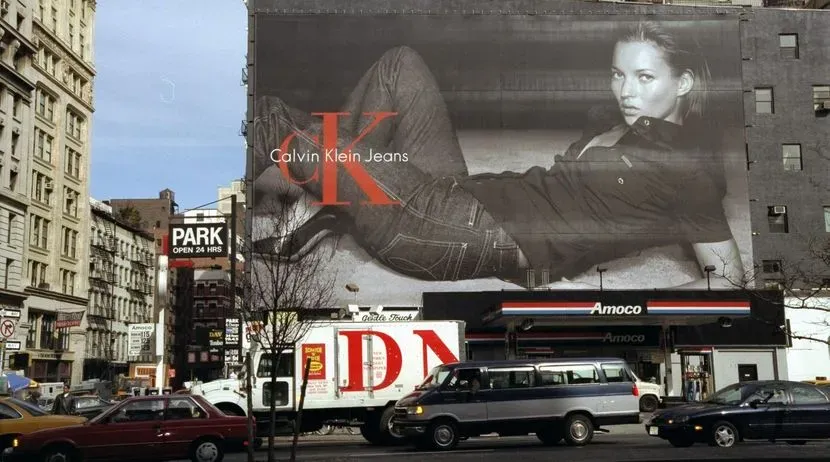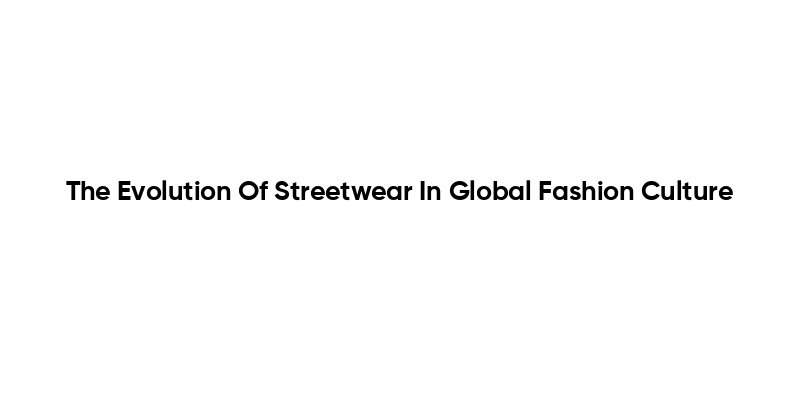Controversial jeans adverts have long sparked debates and discussions, stirring emotions across various demographics. A recent example is the American Eagle ad featuring Sydney Sweeney, which has not only attracted criticism but also garnered attention from notable public figures. This ad has been interpreted by some as promoting controversial themes, echoing the provocative fashion advertising strategies seen in previous campaigns, such as those from Calvin Klein. Historically, denim marketing strategies have relied on shock value to break through increasingly saturated markets, often igniting discussions around societal values. As jeans continue to be a staple in modern wardrobes, the conversations surrounding these advertisements highlight the intersection of fashion and cultural discourse.
The world of denim promotion is often as contentious as it is creative, with controversial jeans adverts frequently at the center of heated debates. Take, for instance, the attention-grabbing campaigns by American Eagle, where celebrities like Sydney Sweeney are employed to push boundaries in fashion marketing. Similarly, Calvin Klein jeans campaigns have a notorious history of utilizing provocative imagery to captivate audiences, generating both sales and societal critique. This dynamic discussion around denim reflects broader trends in fashion advertising, as brands increasingly explore provocative and daring strategies to capture the ever-skeptical consumer attention. Ultimately, these provocative advertisements serve not just as a marketing tool, but also as a lens through which we examine societal norms and values.
The Impact of Controversial Jeans Adverts in Modern Advertising
In the realm of fashion, jeans ads have historically walked a fine line between grabbing attention and sparking outrage. The latest example is American Eagle’s campaign featuring Sydney Sweeney, which has ignited a firestorm of debate. Critics argue that the ad reflects a troubling trend toward eugenics, while supporters assert that the backlash underscores the absurdity of “woke” culture. This polarizing response illustrates a broader trend in the advertising landscape where brands intentionally court controversy to foster engagement and visibility, making their messaging impossible to ignore.
Controversial jeans adverts have a long history of capturing public attention, often marked by provocative imagery or bold statements. Brands like Calvin Klein and Levi’s have redefined the boundaries of fashion advertising, pushing envelopes and provoking thought through their campaigns. For instance, the 1980s Calvin Klein ads with Brooke Shields raised eyebrows for their sexual undertones, contributing to a new era of provocative fashion advertising. Such strategies reflect a deliberate choice by marketers to use controversy as a functional part of their denim marketing strategies, ensuring that their messages resonate amidst today’s media clutter.
Many brands recognize that in the world of denim, advertising must do more than simply showcase a product; it must ignite conversations and generate buzz. The saturated market means that traditional marketing methods are often insufficient to capture the audience’s attention. Therefore, brands like American Eagle and Calvin Klein have turned to controversy, fully aware that a bold campaign is likely to provoke a response, whether that be positive or negative. This strategic boldness ensures that their messaging stays relevant and continues to drive engagement within a competitive market.
Critically, the effectiveness of these controversial ads often transcends the immediate product message. The discussions, debates, and shares that arise in reaction can significantly enhance brand visibility. As retail marketing expert Catherine Shuttleworth puts it, the goal of creating ‘cut through’ is essential for denim brands, prompting them to rethink their advertising strategies in an age where social media’s influence is undeniable. Consequently, what might be deemed offensive to some can translate into a significant boost in brand attention and, ultimately, sales.
Historical Context of Provocative Denim Advertising
The tradition of provocative advertising in the denim sector dates back several decades, with campaigns sometimes steeped in controversy. For example, Jesus Jeans ran an infamous 1973 campaign employing religious imagery to market their products, inciting considerable discussion about the ethics of mixing fashion with faith. This early instance of controversy set the stage for subsequent campaigns, like those from Calvin Klein and American Eagle, which tactfully combined provocative themes with product marketing to push boundaries in various sociocultural contexts.
Examining the evolution of these ads reveals a pattern where societal norms and values influence the reception of denim marketing strategies. As the cultural landscape becomes more nuanced, brands have increasingly leveraged shock value to remain relevant. The provocative imagery, reminiscent of CK’s notable 1980s ads featuring young models, serves not just to elicit attention but also to challenge the audience’s perceptions about fashion and identity. Through such controversial efforts, denim brands have not only survived in a competitive market but have also carved out significant conversations around subjectivity in fashion.
In retrofitting the narrative of historic campaigns to modern contexts, it becomes evident that brands continue to grapple with the impact of their messaging. Levi’s ads with male models and campaigns tackling LGBTQ+ issues exemplify how provocative advertising can push societal boundaries while resonating with diverse audiences. These approaches provide crucial lessons in tailoring denim marketing strategies that appeal to contemporary consumers, showcasing that the conversation does not merely cater to aesthetics, but also to cultural representation and identity.
As advertising moves further into the digital realm, the legacy of controversial jeans adverts serves as a touchstone for brands navigating the complexities of public response. Understanding historical context enables current marketers to craft messages that not only demand attention but also contribute to relevant dialogues within society, ensuring they can foster engagement and growth while remaining sensitive to how their messages resonate with a broad audience.
Lessons from Calvin Klein’s Controversial Campaigns
Calvin Klein’s historic campaigns, particularly those from the 1980s featuring young models like Brooke Shields, provide valuable insights into the interplay of controversy and brand identity in denim marketing. The provocative nature of these ads often blurred ethical lines, leading to heated discussions about sexualization in fashion. Shields’ iconic phrase about her Calvin jeans encapsulated a daring challenge to conventional advertising, turning the brand into an emblem of boldness that still resonates today. This focus on audacity not only drove sales but also established a defining narrative for the Calvin Klein brand.
However, Calvin Klein’s gamble with controversy did not come without consequences. Criticisms surrounding implied child exploitation in later campaigns featuring Kate Moss revealed a precarious balance between artful representation and ethical considerations in marketing. These instances spotlight the necessity for brands to navigate potential backlashes while seeking innovative ways to provoke consumer interest. Calvin Klein demonstrated that while controversy can be a tool for marketing, it is imperative to approach it thoughtfully to avoid alienating consumers.
Moreover, the Calvin Klein legacy teaches that effective denim marketing relies on authenticity and understanding of contemporary social climates. With societal values becoming more sensitive, modern brands must tread carefully, learning from the bold decisions of their predecessors to strike their own unique cord within the market. By aligning their image with progressive values while maintaining the bold edge that defined their history, brands can craft campaigns that not only sell jeans but also foster an inclusive and thoughtful dialogue.
Ultimately, the approach should emphasize a profound understanding of the audience while recognizing the risks involved in provocative advertising. The lessons from Calvin Klein underscore the importance of a well-rounded strategy that balances creativity and public perception—crafting narratives that can both captivate and connect deeply with consumers in a constantly evolving fashion landscape.
Jeans Advertising and Cultural Representation
The evolution of jeans advertising is closely tied to the representation of diverse cultures and identities. Historically, many campaigns have faced scrutiny for their portrayal of race, gender, and sexuality, as seen in the backlash against brands like American Eagle and their recent ads featuring prominent figures such as Sydney Sweeney. Consumers are now more aware and vocal about the cultural implications of advertising, which necessitates that brands approach their messaging with greater sensitivity and inclusivity. By engaging with cultural representation, denim brands can craft narratives that resonate with a broader audience and foster loyalty.
Moreover, the incorporation of cultural narratives within denim advertising strategies is not merely about avoiding backlash but also about creating meaningful connections with consumers. As seen in Levi’s campaigns that featured LGBTQ+ representation, celebrating diversity can attract various customer demographics while enhancing brand perception. Today’s audiences crave authenticity and inclusiveness, making it essential for companies to reflect these values in their advertising approaches, especially within a saturated market where differentiation is paramount.
Additionally, brands are challenged to rethink traditional representations and narratives in light of shifting cultural conversations. Denim marketing strategies that incorporate diverse voices and authentic stories not only enrich the brand’s identity but also foster a sense of belonging among consumers. Campaigns like those featuring fresh faces and unique stories allow brands to transcend product marketing by becoming advocates for inclusivity and social awareness in the fashion industry.
Cultural representation in advertising also presents brands with opportunities for creative storytelling that challenges the status quo. By aligning with grassroots movements or highlighting underrepresented communities, denim brands can leverage their influence to drive social change while building an engaged consumer base. Ultimately, a thoughtful approach to representation will define the future of denim marketing as brands seek to connect with consumers on deeper, more meaningful levels.
The Role of Social Media in Shaping Jeans Advertising
In the modern marketing landscape, social media plays a pivotal role in shaping the narrative of jeans advertising. Platforms like Instagram and TikTok have significantly altered how brands reach and interact with their audiences, creating new avenues for controversy and engagement. As witnessed with American Eagle’s recent ad campaign featuring Sydney Sweeney, social media can amplify both praise and criticism in real-time, allowing brands to experience public sentiment immediately and adapt accordingly. This dynamic environment has pushed fashion brands to adopt bolder strategies to capture attention amidst the noise.
Moreover, the power of social media means that content goes viral much faster than traditional methods, making fine-tuning advertising strategies essential. Brands must now consider how their campaigns will be received across various platforms, shaping not only advertising content but also the brand narrative as a whole. With consumers inclined to share bold or controversial content, jeans brands must develop marketing strategies that encourage dialogue and interaction, ensuring their messages are not just seen but shared widely.
Additionally, the connection between social media and audience engagement has heightened the stakes for denim advertising. Bold campaigns, even controversial ones, can lead to heightened visibility and intensified scrutiny. Stories surrounding the advertisement can snowball within online communities, creating significant interest and potential for backlash. Therefore, it is critical for denim brands to engage with their audiences actively and thoughtfully, responding in ways that foster loyalty rather than alienation.
Ultimately, the influence of social media necessitates a careful calibration of marketing strategies. Brands that recognize the fluid nature of digital discourse and embrace boldness while remaining authentic to their core values can create impactful conversations around their products. Advertisers must also remember that generating buzz through controversy should never come at the expense of fostering positive brand equity and meaningful relationships with their audiences.
The Future of Controversial Advertising in Denim Marketing
As the fashion industry continues to evolve, the future of denim advertising will likely be shaped by growing consumer consciousness and desire for authenticity. Brands that have relied on controversy to drive attention will need to reassess their strategies to remain relevant. The backlash faced by campaigns such as American Eagle’s featuring Sydney Sweeney is a harbinger of the challenges brands will face as younger audiences increasingly prioritize values over mere shock value. This shift will necessitate a transition from provocative ads to inclusive and meaningful storytelling.
Finding the right balance between creativity and ethics will become paramount for denim brands. As marketers adapt to new consumer expectations, they must navigate the delicate line of creating engaging, conversation-starting content without inciting backlash that can tarnish their reputation. Future campaigns may prioritize showcasing diversity and authentic customer experiences over reliance on controversial figures or imagery, leading to more inclusive narratives that appeal to varied audiences without crossing ethical boundaries.
Moreover, as social media continues to revolutionize marketing practices, denim brands will need to further leverage these platforms for authentic engagement. By fostering genuine connections with their consumers, brands can tell stories that resonate more deeply and foster community rather than controversy. Shifting toward a model that emphasizes constructive dialogue will likely serve brands better in the long run, enabling them to create relationships that stand the test of time.
Ultimately, the evolution of jeans advertising will hinge on the ability to adapt to cultural changes and consumer values. While controversy may still play a role, the focus will increasingly be on crafting narratives that speak to authenticity, cultural sensitivity, and social responsibility. As the denim market strives for greater inclusivity and representation, the future of advertising will undoubtedly reflect the values and expectations of today’s discerning consumers.
Frequently Asked Questions
What are the main controversies surrounding American Eagle ads featuring Sydney Sweeney?
The American Eagle ads featuring Sydney Sweeney have sparked debate due to their perceived promotion of eugenics and their connection to ‘woke’ culture criticisms. The contrasting viewpoints illustrate the tensions in provocative fashion advertising today, highlighting societal reactions to controversial jeans adverts.
How have Calvin Klein jeans campaigns contributed to provocative fashion advertising?
Calvin Klein jeans campaigns, particularly in the 1980s and 1990s, have been pivotal in provocative fashion advertising, using suggestive imagery and young models. Ads featuring Brooke Shields and Kate Moss raised concerns over sexualization and child exploitation, demonstrating how controversy can drive attention in denim marketing strategies.
What was the impact of Levi’s advertising strategies on the perception of jeans?
Levi’s advertising strategies, such as the notorious Nick Kamen ad, challenged traditional norms by subverting the male gaze and promoting inclusivity. These campaigns have been essential in defining controversial jeans adverts, creating memorable narratives that resonate with consumers and enhance brand identity.
How do controversial jeans adverts like American Eagle’s impact social media engagement?
Controversial jeans adverts, such as American Eagle’s featuring Sydney Sweeney, ignite discussions on social media, which is crucial for brands looking to amplify their reach. In an era of fragmented media, striking visuals and bold themes in denim marketing increase the likelihood of shares and conversations, making them vital for brand visibility.
Why do jeans brands resort to controversial advertising techniques?
Jeans brands often resort to controversial advertising techniques to stand out in a saturated market where denim products have minimal differentiation. Provocative fashion advertising grabs attention and stimulates discussion, which is essential for engagement and sales in today’s competitive landscape, as noted by branding experts.
What role does cultural context play in the controversy of denim marketing strategies?
Cultural context significantly influences the reception of denim marketing strategies. Advertisements that resonate with current societal issues or challenge conventional norms, like those of American Eagle and Calvin Klein, often land in the spotlight as controversial, reflecting broader cultural debates surrounding gender, race, and social values.
Can controversy in jeans advertising lead to successful sales outcomes?
Yes, controversy in jeans advertising can lead to successful sales outcomes. For instance, despite backlash, the American Eagle ad featuring Sydney Sweeney resulted in a 23% increase in shares, showcasing how engaging campaigns, even those deemed provocative, can positively impact business performance.
| Key Point | Description |
|---|---|
| Sydney Sweeney’s Ad | American Eagle’s ad featuring Sydney Sweeney sparked responses from political figures and celebrities, interpreted by some as promoting eugenics. |
| Historical Context | Controversial jeans ads have a history, with provocative campaigns like Jesus Jeans in 1973 and Calvin Klein in the 1980s exploring sensitive themes. |
| Impact of Social Media | Social media increases the need for attention-grabbing advertising, as ordinary ads struggle to engage consumers. |
| Brand Strategies | Brands use bold and provocative advertising to stand out in a saturated market, relying on controversy to generate discussion and visibility. |
| Banned Ads | Getting ads banned can increase attention and discussion, though it poses risks of long-term backlash. |
| Financial Impact | American Eagle’s shares rose 23% after the Sweeney ad, indicating that controversy can positively affect business. |
Summary
Controversial jeans adverts have been a topic of discussion for decades, with brands leveraging provocative and attention-grabbing campaigns to stand out in a competitive market. From the use of provocative imagery in Calvin Klein campaigns to recent debates sparked by Sydney Sweeney’s American Eagle ad, these adverts serve to generate discussion in both traditional and social media. As brands navigate saturated markets, the historical precedent suggests that pushing boundaries may yield significant visibility and enhance consumer engagement, yet it also invites the risk of backlash. Overall, the landscape of controversial jeans adverts continues to evolve, reflecting changing societal norms and consumer expectations.



